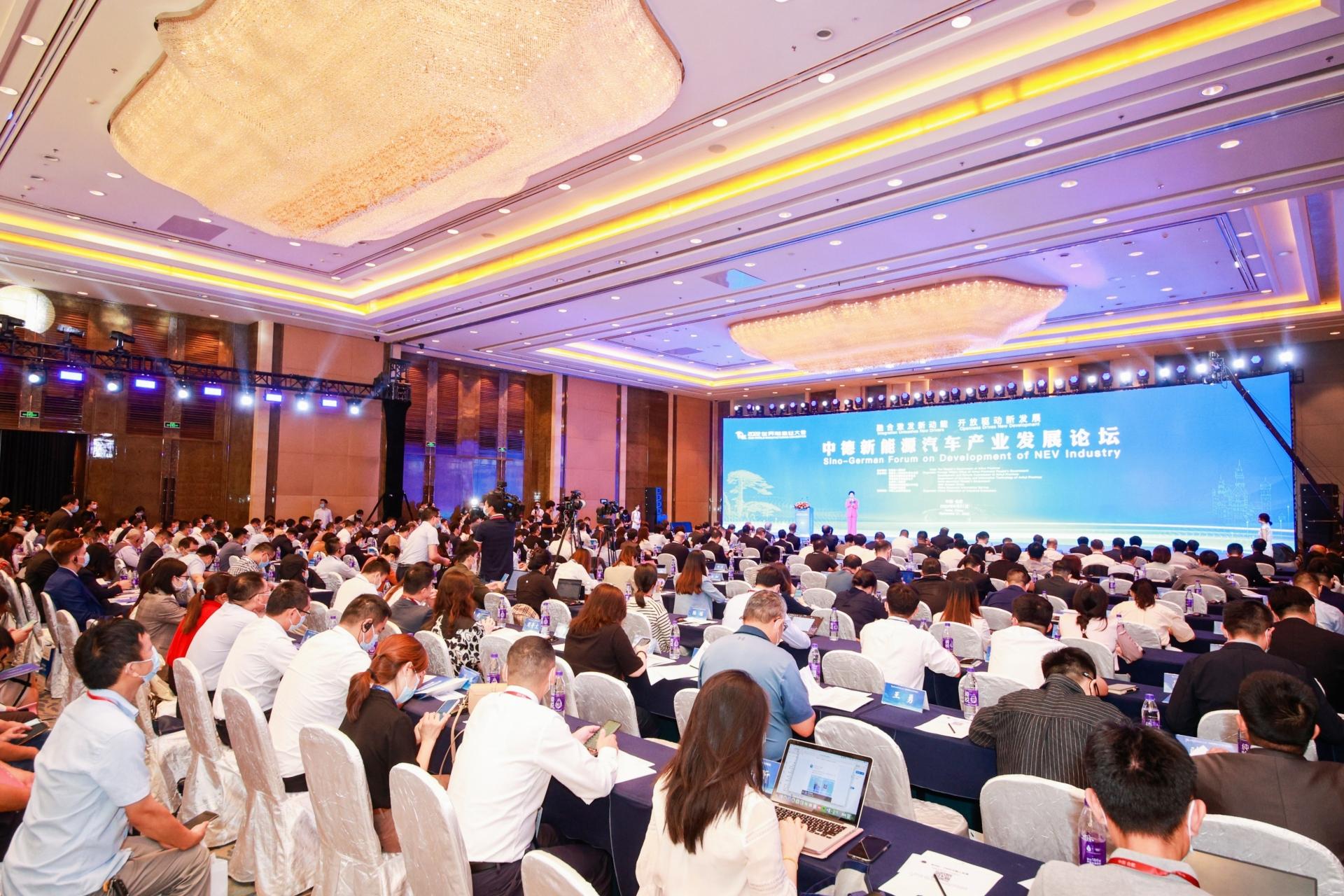HEFEI, Sept. 21 (Xinhua) -- Despite chip shortage and rising raw material prices, China’s new energy vehicle industry is growing at fast pace with more support policies from both central and local governments.
China has taken a series of support policies to lower the new energy vehicle purchase costs and improve the charging infrastructures, including extending auto purchase tax free policy to the end of 2023, and accelerating the EV charging infrastructures along major highways, said Xiong Meng, general secretary of the China Federation of Industrial Economics,at the Sino-German Forum on Development of NEV Industry in Hefei of central China’s Anhui Province on Wednesday.
With these support policies and customer preference, China produced and sold 3.97 million and 3.86 million new energy vehicles in the first eight months of this year, surging 120 percent and 110 percent from a year ago, according to the latest data from the China Association of Automobile Manufacturers (CAAM).
By the end of August, the market share of new energy vehicles in China stood at 23 percent, rising from the 13.4 percent at the end of 2021; and the number of public charging facilities exceeded 1.6 million units, an increase of 64.8 percent from a year ago.
Despite chip shortage and rising raw material prices, China’s new energy vehicle industry has entered market-driven development era, said Shi Jianhua, deputy general secretary of the CAAM, at the forum. According to his forecast, China’s new energy vehicles sales would exceed 5.5 million units this year, surging 56 percent year on year.
On the expectation that the production and sales of new energy vehicles would keep current fast growth momentum, carbon emissions of passenger cars in China could possibly reach their peak by 2025, said Ouyang Minggao, academician of Chinese Academy of Sciences, at the forum.
He expected the sales of new energy vehicles would exceed that of fuel oil vehicles before 2030, and the new energy vehicles would account for over half of the market share by that time.
In addition to central government policies, local governments in China have also geared up their support for the industry. Anhui, an emerging auto making base in China, has rolled out a series of measures to boost the new energy vehicle and intelligent connected vehicle industries in August.
The province will set up an 18-billion-yuan fund to support the development of the two sectors with focus on encouraging innovation and extending industrial chains, said Xu Zhi, deputy director of the Development and Reform Commission of the Anhui Province, at the forum. In addition, the province will encourage the use of new energy vehicles in rural market, as well as in public transport and logistics sectors.
At the same time, Anhui will accelerate the construction of battery charging and swapping stations along highways, said Xu. It will boost its charging piles at highway service areas to over 2,000 units, and the number of battery swapping stations to more than 50 units by 2025.
The auto industries both in China and overseas are enhancing their efforts to promote the development of new energy vehicles, as it’s widely accepted that new energy vehicles could help the transport industry to achieve carbon neutrality goals.
“The quick improvement of power battery performance and wide expansion of charging infrastructure is necessary in order to achieve the ambitious (climate) goals for both China and Germany,” said Hildegard Müller, president of the German Association of the Automotive Industry, at the forum. She called on the auto industries both in China and Germany to reach productive cooperation to help achieve the carbon neutrality goals.
China and Germany have carried out all-around cooperation in auto industry and achieved substantial results over the past years, saidXiong, adding that China will continue to deepen international cooperation in new energy vehicle industry in the future. (Contributed by Jiang Yujuan, jiangyj@xinhua.org; edited by Wang Sheng)




 A single purchase
A single purchase









